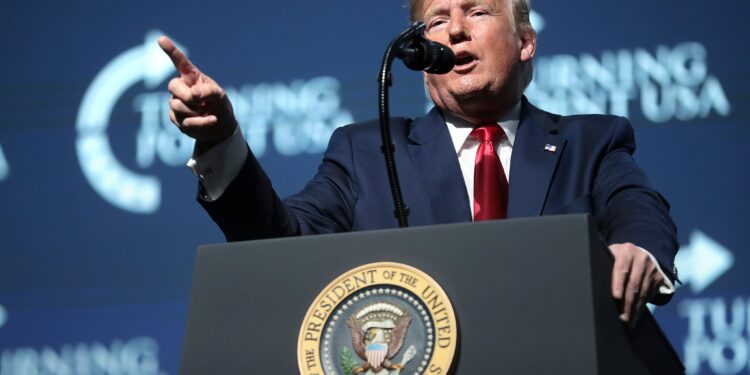
President Donald Trump’s bold agenda—focused on border security, tax relief, and American energy independence—is hitting delays in the U.S. Senate, as key Republicans warn the package may not be ready until late summer or even fall.
Senate Timeline Slipping: What GOP Leaders Are Saying
Senate Republican Leader John Thune (R-S.D.) has privately warned colleagues that the Senate likely won’t vote on Trump’s signature policies until July at the earliest.
Why the delay? GOP insiders point to:
- Complex policy differences within the Republican caucus
- A massive legislative package involving taxes, energy, the border, and defense
- An unrealistic timetable coming from House leadership
“There’s just no way this gets done by April or May,” said one Republican senator close to the negotiations.
Speaker Johnson’s Push Meets Senate Reality
House Speaker Mike Johnson (R-La.) had hoped to pass the reconciliation bill—including Trump’s tax cuts extension and new funding for border enforcement—by Easter.
In a recent interview, Johnson said he placed the bill on an “aggressive timetable” to restore certainty for American businesses and families.
But senators say the House is moving too fast. Thune and others have raised concerns that the House’s budget plan isn’t ready for primetime—and needs serious revision.
Ad Opportunity: This is a natural spot to place a mid-article banner ad for retirement planning, tax advice, or conservative news subscriptions.
Trump’s Tax Cuts and Entitlements: What’s on the Table?
One of the biggest pieces of Trump’s agenda is making the 2017 tax cuts permanent. But disagreements remain over how to account for the cost.
Senator Mike Crapo (R-Idaho) supports a “current policy” approach that wouldn’t count it against the national deficit—something fiscal hawks like Sen. Bill Cassidy (R-La.) are pushing back on.
Trump’s Bold Proposals:
- End taxes on tipped income
- Eliminate taxes on Social Security benefits
These could put real money back in the pockets of working Americans and retirees—but may cost up to $1.7 trillion over 10 years.
Medicaid Cuts Raise Concerns Among Senate Republicans
The House budget calls for $880 billion in spending reductions, which budget experts say could mean cuts to Medicaid—a program millions of low-income seniors depend on.
Several GOP senators are not on board:
- Josh Hawley (R-MO): “I don’t support deep Medicaid cuts.”
- Jim Justice (R-WV): “West Virginia has huge Medicaid participation. We must be careful.”
- John Boozman (R-AR): “My constituents would be impacted.”
While all agree the program needs reform, many are calling for targeted fixes to reduce fraud and waste, not sweeping cuts.
Ad Opportunity: This section is ideal for healthcare-related ads, Medicare guides, or Medicaid supplement plans.
Defense Spending: Will It Be Enough?
Defense remains a top priority, especially as threats from China, Russia, and Iran continue to grow.
The House budget proposes $100 billion in new defense spending. But Senate Armed Services Chair Roger Wicker (R-MS) says that falls short.
“We need more than $150 billion—closer to $175 billion—to meet our national security needs,” Wicker said.
Senate Republicans expect the reconciliation package to include a larger defense boost to ensure the U.S. military remains unmatched worldwide.
Final Word: Senate Delay, But Conservative Momentum Is Building
While delays in the Senate are frustrating, one thing is clear: conservatives are determined to deliver.
President Trump’s bold America First agenda has momentum—and with leadership from figures like Speaker Johnson and Senators Thune, Graham, and Wicker, the pieces are coming together.
The goal remains simple:
✅ Secure our border
✅ Lower taxes for working families and seniors
✅ Rebuild American energy and military strength
